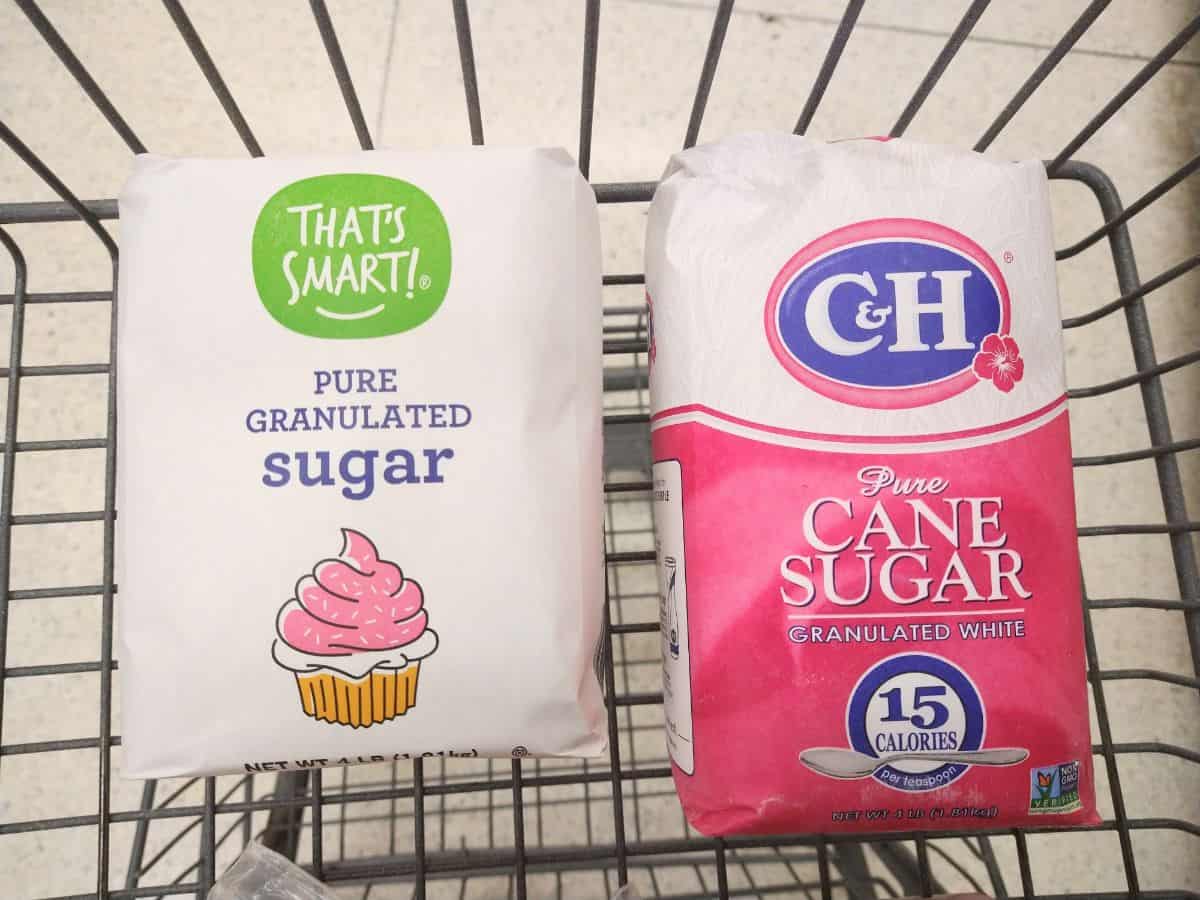Beet Sugar vs Cane: Which One Is Better for Your Health and Diet?
Beet Sugar vs Cane: Which One Is Better for Your Health and Diet?
Blog Article
The Excellent Debate: Beet Sugar Vs Cane and Their Influence on Health
The continuous dispute surrounding beet sugar and walking cane sugar raises essential questions concerning their corresponding wellness influences and wider ramifications for consumer selections. While both sugar share a comparable chemical structure, their origins and handling techniques may influence not only nourishment however likewise environmental sustainability. As health-conscious individuals weigh the benefits of each option, the implications of chemical direct exposure and farming practices enter into emphasis. This discussion invites us to think about not just the sweet taste we choose, yet the far-ranging effects of those options on our health and the earth. What might this mean for future intake patterns?
Introduction of Sugar Sources
Sugar, an extensively eaten sugar, mainly originates from two main sources: sugar beets and sugar walking stick. Sugar walking cane thrives in exotic and subtropical environments, with significant manufacturers consisting of Brazil, India, and China.
Alternatively, sugar beets are primarily grown in warm areas, with significant manufacturing in countries such as the USA, France, and Germany. The beets are harvested from the ground, cut, and subjected to a procedure that converts the removed juice right into granulated sugar. While both sugar sources inevitably generate sucrose, their agricultural methods, refining methods, and geographical circulations vary significantly.
These differences can influence not only the environmental effect of sugar production yet also the economic aspects of sugar pricing and trade. Comprehending the origins of these sweeteners is important for policymakers and customers alike, as it lays the structure for notified discussions regarding their health and wellness implications and sustainability.
Nutritional Contrast
When taking a look at the nutritional profiles of beet sugar and walking stick sugar, both resources share a comparable make-up as they mainly are composed of sucrose. Sucrose is a disaccharide, composed of sugar and fructose, and is in charge of the sweet taste connected with both sugars. The refining procedures for both beet and cane sugar return products that are primarily pure sucrose, with minimal traces of vitamins, minerals, or various other nutrients.
In regards to calorie material, both beetroot and walking stick sugars provide about 4 calories per gram. Neither sort of sugar supplies substantial nutritional advantages beyond power provision, as they lack vital vitamins or minerals. The presence of trace components, such as calcium, magnesium, and potassium, can differ slightly between the two, largely due to the farming practices and soil conditions in which they are grown.
Furthermore, the glycemic index values of beetroot sugar and walking stick sugar are similar, showing similar effects on blood sugar degrees. In general, from a nutritional point ofview, beetroot and cane sugars are functionally equal, adding largely to calorie intake without using substantial wellness advantages over each other.
Health And Wellness Effects
The health implications of consuming beetroot sugar and cane sugar warrant cautious consideration, specifically provided the rising prevalence of sugar-related health problems. Both sorts of sugar contribute comparable caloric worths and can result in raised dangers of excessive weight, kind 2 diabetic issues, and heart diseases when consumed in extra. The body metabolizes both sugars into sugar, which can cause spikes in blood glucose levels, causing insulin resistance gradually.
While there is recurring dispute regarding the glycemic index of these sugars, studies suggest that both can negatively impact metabolic health and wellness if consumed in big quantities. beet sugar vs cane. Furthermore, the possible existence of contaminants in beetroot sugar, such as pesticides from standard farming methods, raises additional wellness issues. Conversely, walking cane sugar, specifically when minimally refined, may provide a somewhat more desirable account as a result of its all-natural state
In addition, the consumption of added sugars, no matter the resource, is connected to unfavorable health results, including dental issues and fatty liver illness. Small amounts is important, and individuals should be conscious of their overall sugar intake from all sources, inevitably prioritizing entire foods over added sugars for optimum health results.
Ecological Effect
Understanding the health and wellness ramifications of beetroot and walking cane sugar also brings about an assessment of their ecological impact, which can significantly affect agricultural sustainability and ecological equilibrium. Both sugar resources have distinctive ecological impacts, check out this site formed by their farming techniques and geographical needs.

On the other hand, beetroot sugar is usually grown in pleasant climates and often involves diverse plant rotations. This technique can improve dirt wellness and minimize reliance on chemical inputs. Nonetheless, extensive beetroot farming can also cause nutrient exhaustion and pest stress if not taken care of sustainably.
Both sugar types existing difficulties and chances for environmental stewardship. Advertising sustainable farming methods and responsible sourcing can mitigate their effects, ensuring that sugar production aligns with environmental conservation and long-term food safety and security.
Customer Preferences
In the middle of growing awareness of health and wellness and ecological concerns, customer choices for sugar types are increasingly influenced by perceptions of health benefits, sustainability, and ethical sourcing. Beetroot sugar and walking stick sugar each present distinct features that interest different customer demographics.
Health-conscious customers frequently look at the dietary profiles of these sugars, looking for options viewed as less refined or more all-natural. Walking cane sugar, frequently related to as the typical sugar, learn this here now is in some cases preferred for its perceived purity and simplicity. On the other hand, beetroot sugar, which is regularly acquired from genetically changed crops, encounters apprehension amongst those concerned about GMOs.
Sustainability is one more significant variable affecting consumer choices. As understanding of agricultural techniques grows, many customers decide for products that straighten with environmentally friendly farming techniques. Cane sugar manufacturing, especially when sourced from lasting ranches, can appeal to eco-conscious buyers.
Honest sourcing plays a crucial function as well, with consumers significantly preferring products that sustain fair labor techniques. Accreditations such as Fair Profession can useful site improve the appearance of walking stick sugar in the market. Eventually, consumer choices are formed by a complicated interaction of wellness, ecological, and ethical considerations, driving need for both beet and walking cane sugars in diverse markets.
Final Thought
In verdict, the discussion between beet sugar and walking stick sugar includes various variables, consisting of dietary profiles, wellness implications, and environmental consequences. beet sugar vs cane. While both sugars largely contain sucrose and show comparable caloric content, issues pertaining to pesticide use in beetroot sugar and the environmental influence of cane sugar monoculture warrant cautious factor to consider. As customers significantly prioritize sustainability and health and wellness, informed options regarding sugar intake end up being necessary in promoting total health and ecological stewardship

Report this page